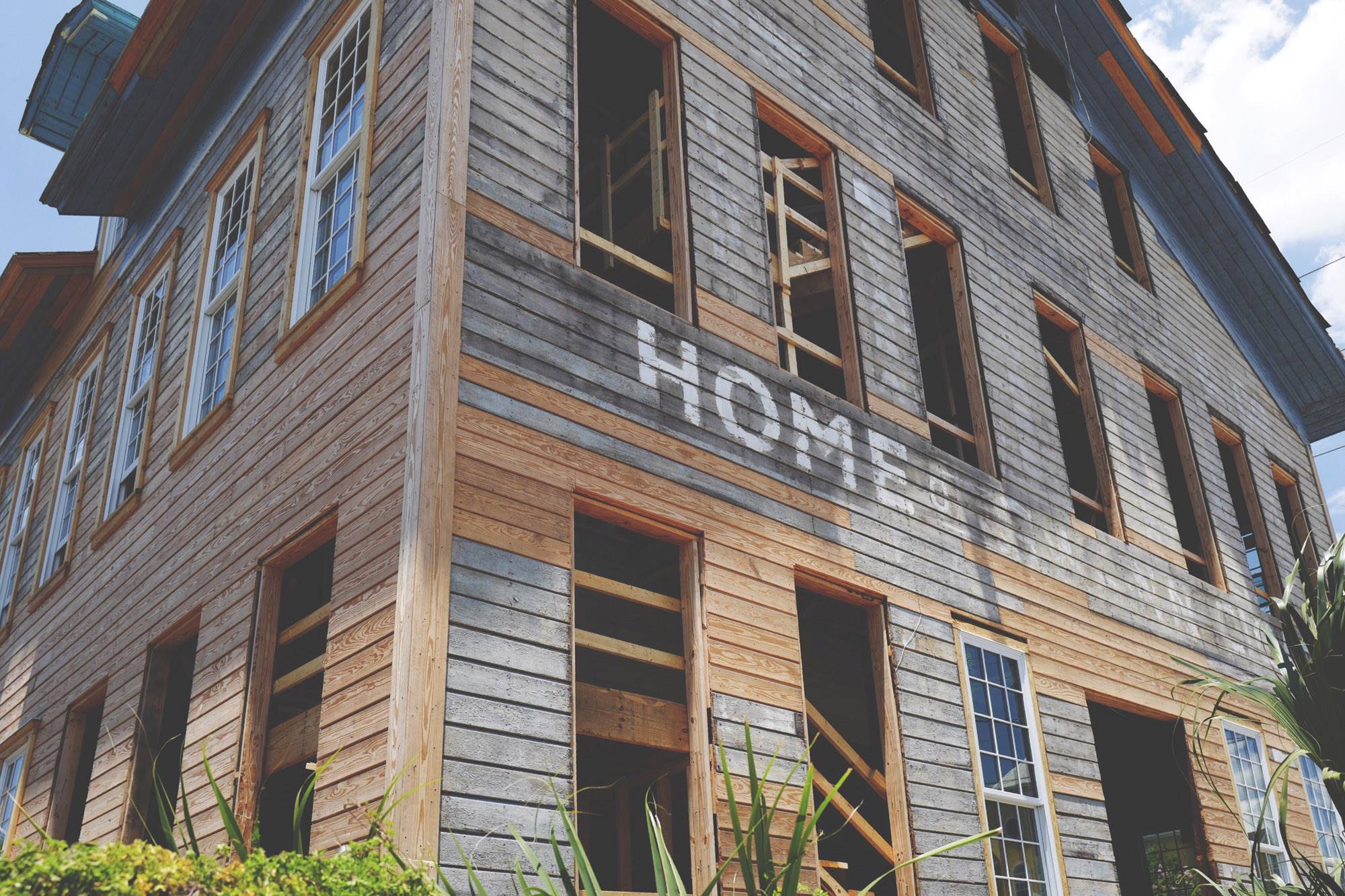Introduction
We'll wrap up our four-part series on the process of getting projects done with answers to some questions that we get frequently. Don't forget to go back and read our previous articles in this series:
Part 1: So You've Decided to Hire a Designer
Part 2: What's This Design Thing All About?
Part 3: Things You Should Know About Construction
If you have a question we didn't cover, please send it in. We would love to hear from you.
Part 1: So You've Decided to Hire a Designer
Part 2: What's This Design Thing All About?
Part 3: Things You Should Know About Construction
If you have a question we didn't cover, please send it in. We would love to hear from you.

1: How Much Will This Cost?
Taking the bull by the horns, here. This is always the big question. It also doesn't have an answer, and it's why we're leery of giving you one. Rather, it has many, many answers, some of which aren't valid, but a wide range which are, so the costs below go in brackets. They're quoted per square foot so they can be applied to a broad number of projects. They are also -- and this IS VERY IMPORTANT -- apply generally to Texas metro areas in 2016 and assume typical construction types and details and exclude everything except construction costs. If you're reading this in 2018 or you're reading this from Alaska, then there's some adjustment to do. Also, don't forget to budget for furniture, design costs, and similar separately.
These costs come with one guarantee: We guarantee that they're wrong. It's just the nature of bidding. But they're reasonably close. You can build a general budget based on these, but be prepared to adjust when it comes time to get bids.
Residential
All costs per square foot
Addition to a house: $160-$240
Addition to a historic house: $180-$250
New house, generic and kinda boring, very cheap: $135-$160
New house, interestingly designed but not crazy expensive: $150-$200
New house. Gorgeous, fantastic new house: $250-$500
Deck, pretty ordinary: $25-$40
Deck, the one you really want: $40-$80
Commercial
Commercial construction varies even more than residential does because construction types, finishes, and other parameters vary more, too. You should be talking directly to us for commercial projects. A thousand dollars spent on proper budgeting can help you avoid a $100,000 shortfall on a $1,000,000 project, or multiply all of those figures by 10 for larger projects. It's worth it. Sorry; no rule-of-thumb numbers.

2: Why Is Construction So Expensive?
Construction is a fairly elastic market -- it goes up quite a bit when there's lots of demand, and it goes down when there's not. The price of materials sets a floor, but the ceiling can get quite high when everyone is busy. As of this writing -- July 2016 -- the market is hot in most of Texas. The drop in oil prices has killed a bit of demand for new projects, but overall employment levels are still quite good. Residential construction is still going gangbusters, and there's quite a bit of institutional and corporate work going on, depending on where you are.
All of that means that prices are high now. The $100/sf price for an addition you may have seen in 2009, inflated a few years and adjusted for market conditions, is now double that. But if oil stays low, state employment rates fall, and construction tails off, there could be a quick return to $150/sf for that same project. Almost all of the difference in those figures is labor costs and general contractor profit.
Lest you get bent out of shape about what that volatility implies for profits, keep in mind that the contractor who's making crazy profits in 2016 may be struggling to get work in 2020. Hope that he or she saved their money -- construction downturns can last a long time and bankrupt a lot of companies.

3: Why Does Design Cost That?
Mainly because you're buying peoples' time. Maybe some detailed breakdown would be helpful. Let's start with the United States median for professional workers income: $110,000 at last check. Call it $100k to make it easy. But there are lots of other costs in running a business as well: rent, telephones, Internet, utilities, software, computers, healthcare, marketing expenses, and all kinds of other things. A good ratio is spending about 1.5 times salary just to stay alive as a business. Businesses die without profits, so add another 10% for a small profit (average is around 15%). Total all of that up, and a person making $100k needs to bring in $165k per year for everything to square.
Now, in a good year, we can use about 60% of our time on billable projects -- the rest goes to running our business, marketing, keeping up with professional development hours, etc. So we've got 60% of a year's standard hours -- 2,080 * 0.6 = 1,248 -- to bill that $165k. Divide it out, and you've got a billing rate of $130 per hour or so.
That's for Work5hop, a small firm with limited overhead. If you're a big firm, you've got a net multiplier -- the number you multiply against raw salary -- of around 3.0. Divide all of that out again, and a $100k salary turns into $240/hour. So you should definitely hire us. If you find someone cheaper, go for it, but our price structure is a bargain rate for highly qualified and experienced people. You're going to give something away in terms of experience or quality if you go cheaper.

4: How Long Will It Take?
Have I said before that it depends? Oh, on every single answer so far? Well, how long it takes depends on how big a project is, how quickly we can work through what you want, and how fast the contractor can move. The estimates below are brackets around average timeframes.
Simple addition or renovation: A month of design and permitting; three to six months for construction.
Complex addition or renovation (including homes in historic districts): Two months of design and permitting; five to nine months for construction.
New custom home: Two to six months of design and permitting; nine to 16 months for construction.
Commercial finish-out: One to six months of design and permitting; two to twelve months for construction. There's more variability in this one due to different project types.
New small commercial building: Four to eight months of design and permitting; nine to 16 months for construction.

5: Why Do I Need You?
Sometimes you're legally required to use an architect. The state has a great interactive questionnaire here to help you figure it out. No architect is required for single-family homes (including additions and remodels), most apartment complexes fewer than 16 units, or most commercial buildings less than 20,000 square feet. For the latter two categories, though, compliance with the Texas Accessibility Statute will be a lot easier if you've got a trained professional to help.
But, more frequently, you need us because of what we can do, not because it's a requirement.
If you care how your project feels and looks, you need a designer. We're trained -- five years of school, three years of internship, and 15+ years of work experience -- to understand what you want as a client and how to put buildings together. We work entirely in three dimensions, meaning that we produce drawings that you can easily look at and understand. We work daily with contractors, city permitting, and others in the field to get projects done. More than anything else, we're your advocate and guide to the frequently difficult world of construction.
The bottom line is that if you care about the design of your project and you don't have the experience and skill to handle it yourself, you'll benefit from working with a designer. We have an usual mix of small-firm low costs and big-firm experience and savvy.

6: Where Will You Work?
Texas, mostly. For architecture, that's a legal thing -- architects have to be registered in the state where a project is located. If you've got a project in another state, we can get registered there. It just takes a little bit of time and money. We can also work with an architect who's registered in your state, which avoids the registration issue. For master planning and other non-regulated services, we can and will work anywhere.

HELP!!
Call us. Write us. We want to make this easy for you. Asking us questions is free. We're happy to talk with you about your project and to provide you with a detailed proposal without any obligation to you.
We've got lots of experience with projects as small as a $15,000 carport and as large as a $45 million utility plant, and everything in between. We know how to do projects the right way.